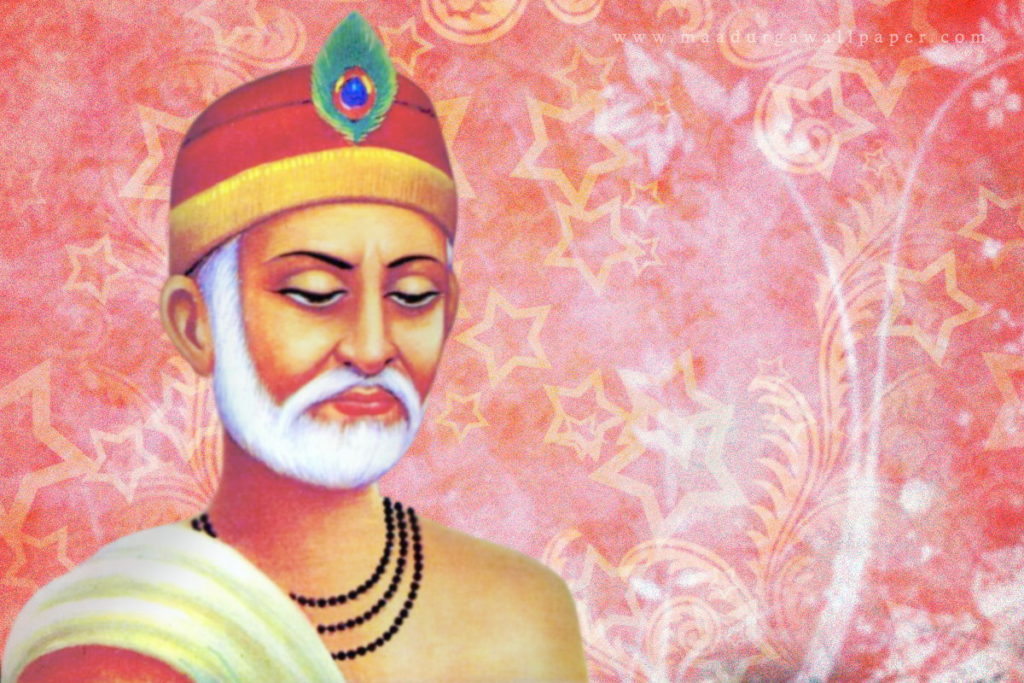By Aaliyia Malik

If you say you’re a Brahmin
Born of a mother who’s a Brahmin,
Was there a special canal
Through which you were born?
Kabir Das, a 15 th century Indian mystic poet and saint was also a very strong critique of the Hindu social order. Legend has it that he was born into a Julaha family (Muslim Weavers) before becoming a disciple of the Hindu ascetic Ramananda. His poems were in vernacular Hindi and included dialects such as Awadhi and Braj. Although a large part of Kabir’s poetry was devotional, he has been a very strong critic of religion and religious practices. With simple Hindi verses he composed verses around devotion, mysticism and discipline.
His death in Benares
Won’t save the assassin
From certain hell,
Any more than a dip
In the Ganges will send
Frogs—or you—to paradise.
My home, says Kabir,
Is where there’s no day, no night,
And no holy book in sight
To squat on our lives
For Kabir religion wasn’t faith that could be compartmentalized into Hindu or Muslim. He drew from both the religions and criticized them too. For instance, he often shunned practices of idol worship, and mocked the practice of praying to Avatars such as Buddha. His argument was that these masters didn’t put down evils. Instead he encouraged people to consider one another as manifestations of God. He rejected hypocrisy and misguided rituals in religions. As is clearly evident:
Saints I’ve seen both ways.
Hindus and Muslims don’t want discipline, they want tasty food.
The Hindu keeps the eleventh-day fast, eating chestnuts and milk.
He curbs his grain but not his brain, and breaks his fast with meat.
The Turk [Muslim] prays daily, fasts once a year, and crows “God!, God!” like a cock.
What heaven is reserved for people who kill chickens in the dark?
Instead of kindness and compassion, they’ve cast out all desire.
One kills with a chop, one lets the blood drop, in both houses burns the same fire.
Turks and Hindus have one way, the guru’s made it clear.
Don’t say Ram, don’t say Khuda [Allah], so says Kabir.
Kabir wrote about oneself, about everyday life and that is what gave his work a significant charm. He supported ordinary living as propagated by the Sufis. What was also evident is, that Kabir was a staunch anti – caste writer and questioned Brahmanical hierarchy and practices.
The donkey is far better than Brahmin
Dog is better than other castes
The cock is better than the Mullah
They wake the people by their blasts
Before Babasaheb, it was Kabir who pointed out that dividing men into castes does no good to them and that all forms of life are impure for Brahmins. He instead considered animals to be better than humans. His knowledge was extensive and did not divide men into categories as the Hindu social order did. He was very well aware of human emotions and succeeded in incorporating them into his poems.
There is an uncanny resemblance between Kabir and Babasaheb, although both are almost 500 years apart. For both of them the understanding of religion was a critique of prevalent norms and customs. Both in their early lives had denounced the order that was divinely ordained and followed a more mystic, natural and secular path. It is through them that the anti caste narrative emerged. The ideals were questioned and practices were overthrown. In their own ways both Kabir and Babasaheb defied customs and rules of a highly discriminatory social order.
It wasn’t just Kabir’s philosophy that drew Babasaheb to him, but it was also the identical social and religious ambience of the times and eras they lived in. Quite a few scholars considered Kabir’s works to be a part of the Dalit literature. Ambedkar today is remembered through songs and poems which narrate his teachings and tales. Dalit literature forms an integral part of belonging for the community that has been left out for so long. It creates the sense of being Dalit as opposed to the donated term Harijan. It is important for the Dalit community to recall and retell tales of resistance. Whether or not Kabir and his works are part of the same genre or narrative, they still are a classic example of defiance and struggle against the norms.


When everything sells-the mind sells , humanity is sold,compassion goes cheap in the market,brother/sisterhood has no value at all…
but something thats still very precious to all are these messages from Kabir,they are invaluable.Hope people read them these days.